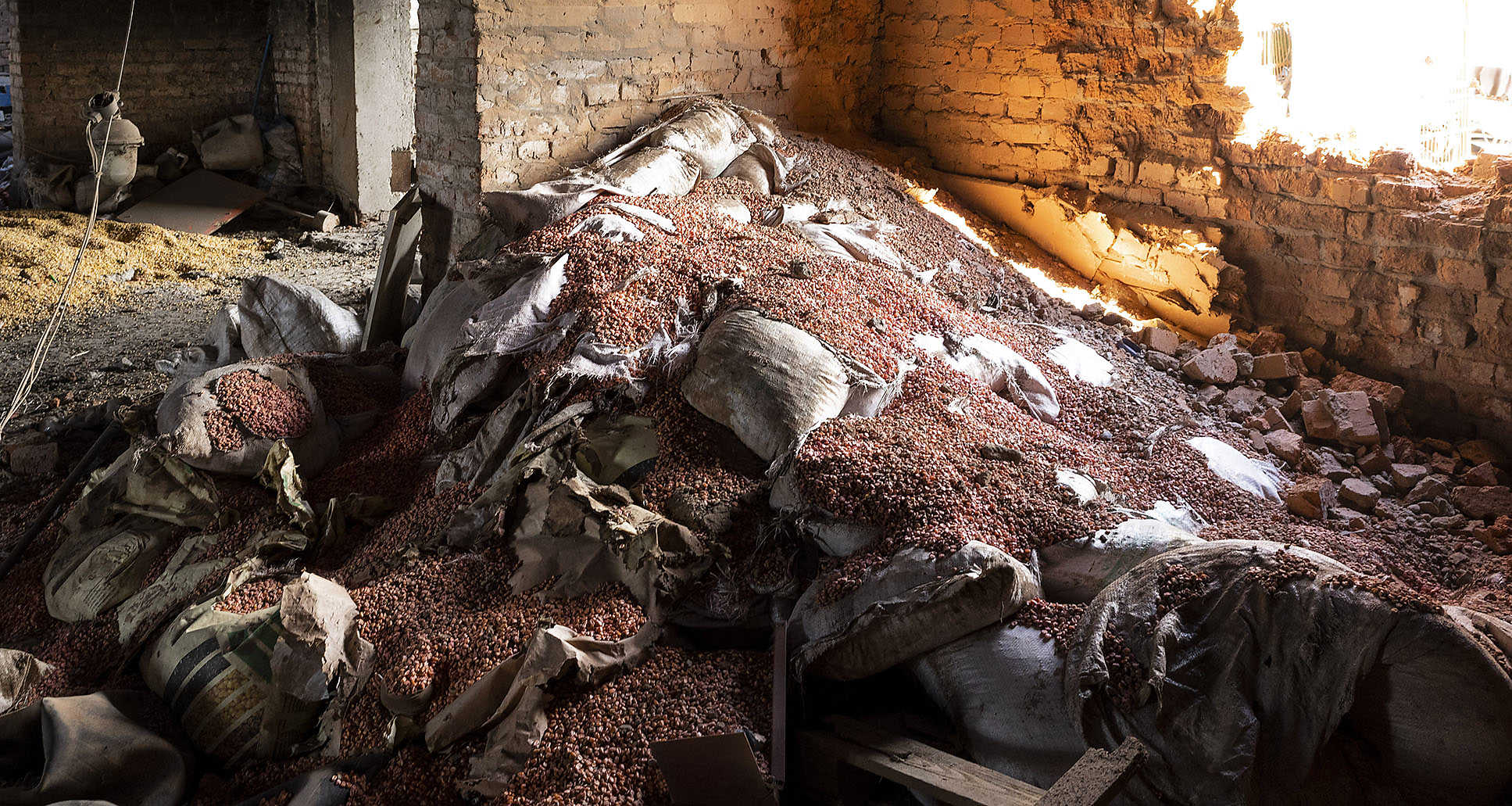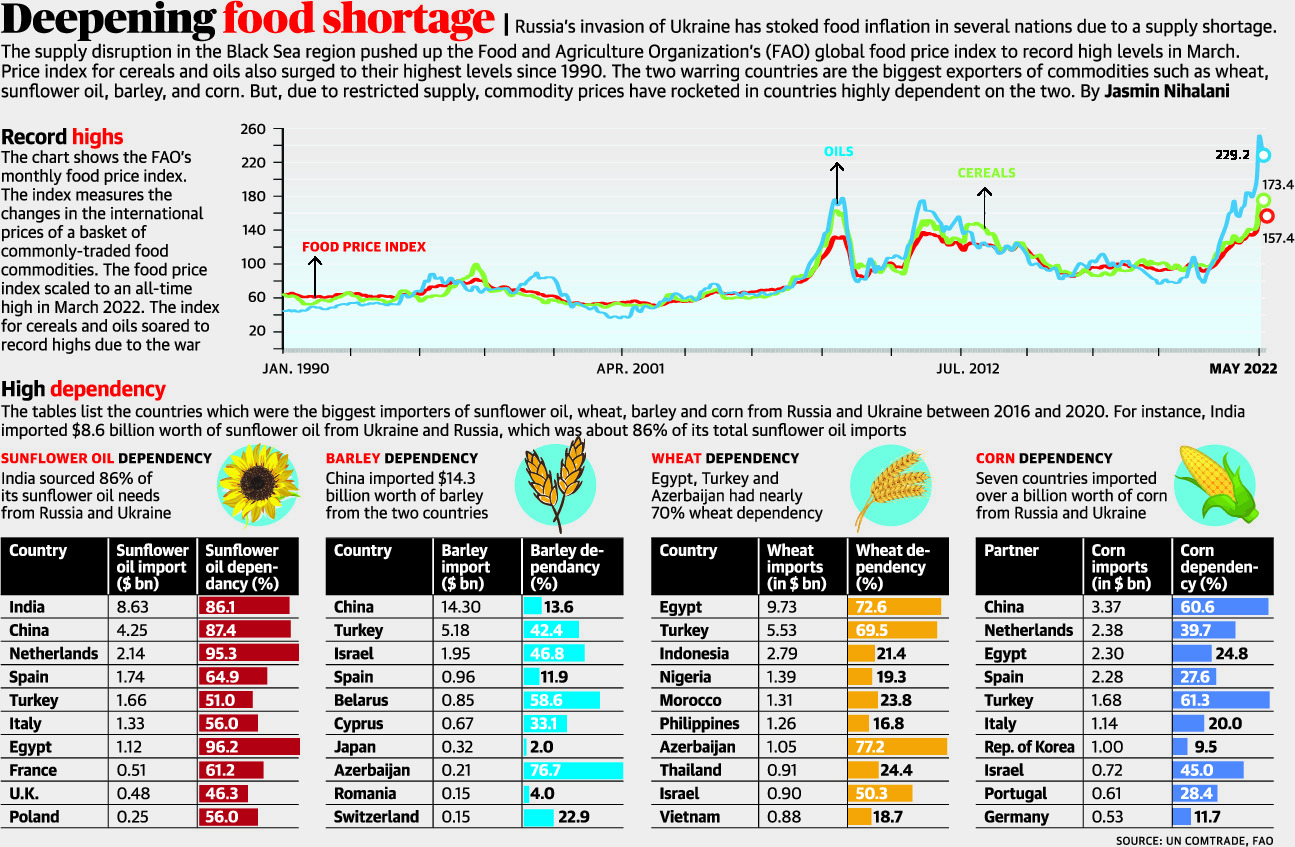Description

Copyright infringement not intended
Context:
- Global food prices are on the rise.
- Ukraine and its allies accuse Russia of weaponising food, saying that its blockade of Ukraine’s Black Sea ports is the primary reason for the rising prices, while Moscow has blamed Western sanctions for the crisis.
- Before the Russian invasion of Ukraine started, Ukraine had the capacity to export up to six million tonnes of wheat, barley and maize a month, mainly through its ports in the Black Sea/Sea of Azov.
- Now, several Ukrainian port cities are under Russian control and have thus brought exports from Ukraine to a grinding halt.
- While Russia’s food and fertilizer sectors are not directly targeted by western sanctions, the sanctions on its financial sector, which makes payments difficult for Russia, has complicated its exports, including foodgrains.
- Both the UN and Turkey have initiated talks with Russia to find a solution to resume exporting both Ukrainian and Russian grain, but no breakthrough has been achieved so far. Russia and Ukraine together account for more than a quarter of the world’s wheat supplies.

Copyright infringement not intended
How serious is the food crisis?
- Many countries were facing growing food insecurity even before Russia’s war.
- Climate shocks, conflicts and the COVID-19 pandemic had disrupted supply chains, pumping up prices of both commodities and crops.
- The war in Ukraine has aggravated this situation.
- As of June 1, 2022, the Agricultural Price Index was 40% higher compared to January 2021, according to the World Bank.
- Maize and wheat prices rose 42% and 60%, respectively, from the levels of January 2021.
- Global food, fuel and fertilizer prices are projected to be sharply higher this year and will remain elevated into 2024, the Bank estimates.
How important are Russia and Ukraine for global food security?
- Russia and Ukraine together account for more than a quarter of the world's wheat supplies.
- Wheat is a staple food for at least 35% of the world’s population, as per the estimates of the UN Food and Agriculture Organization (FAO).
- Besides wheat, Ukraine is the world’s eighth-largest producer and fourth-largest exporter of corn, accounting for 16% of global exports.
- Furthermore, Ukraine, which produces up to 46% of sunflower seed and safflower oil is the world’s largest exporter of sunflower oil. So, the war and the sanctions have clearly hit the world’s bread basket region, adding pressure on food prices.
Way Forward:
- Russia has suggested that it would resume exports from the ports on the Sea of Azov that it controls (Mariupol and Berdyansk) and that it would open a corridor for commercial vessels in the Black Sea if Ukraine demines the ports it controls.
- Ukraine has little good options to ship its grains out of the country if its ports remain blockaded. One option is to transfer the grains overland to the Baltic states, either through Poland or Belarus, and then ship them out from the Baltic Sea ports.
- The only practical solution to take Ukrainian grains to the global markets is to open the Black Sea routes.
- And to ease the pressure on global food items, Russia will also have to step up exports of both grains and fertilizers. For this, Kyiv and its allies may have to strike a deal with Russian President Vladimir Putin.
https://epaper.thehindu.com/Home/ShareArticle?OrgId=GOC9TD36Q.1&imageview=0
1.png)
















